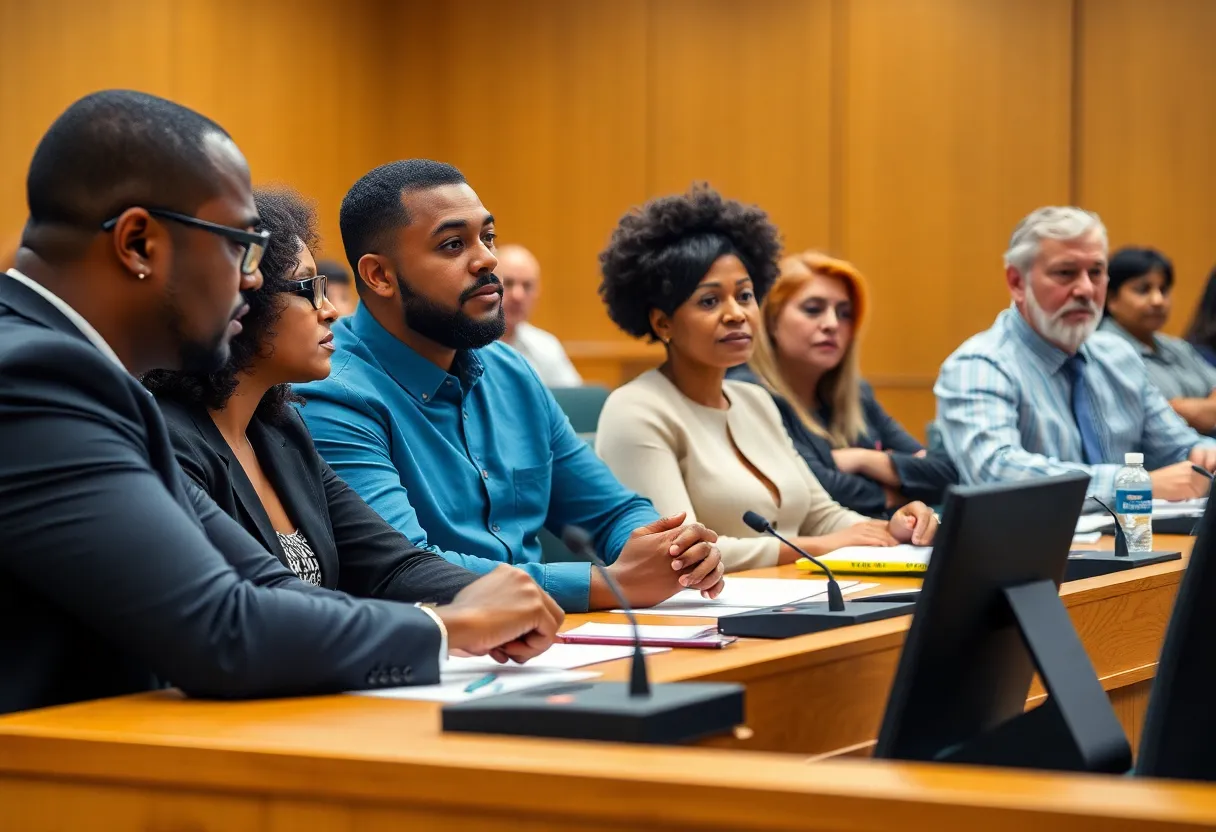News Summary
The College Station City Council recently debated proposed impact fees during a packed meeting. Many local developers and homeowners expressed concerns that these fees could worsen the housing affordability crisis, while supporters argued for their necessity in funding local infrastructure improvements. The topic of affordable housing remains at the forefront as the council continues discussions. The council’s decision to engage state lawmakers on this issue adds a significant layer to the ongoing housing dialogue in the community.
College Station City Council Debates Impact Fees Amid Housing Affordability Concerns
College Station is buzzing with conversations around impact fees, a topic that came to the forefront during a recent City Council meeting. On April 10, 2025, the council gathered with a room packed with residents and stakeholders eager to share their views. The meeting saw a lively exchange of opinions, with about a dozen public speakers weighing in on the proposed impact fees which are essentially charges destined for funding streets and infrastructure associated with new developments.
It was an engaging debate, with a clear divide among speakers. Ten of them, including local developers, homebuilders, and realtors, took a stance against the proposed fees. They argued that these fees could drive the cost of housing even higher, exacerbating the ongoing challenges with affordable housing in the community. Meanwhile, a couple of voices chimed in favor of the impact fees. A member of the city’s impact advisory committee and retired councilman Dennis Maloney provided their perspectives, advocating for the necessity of these fees in improving the local infrastructure.
In a notable twist, some public speakers went beyond impact fees amidst their pleas for more affordable housing solutions, underscoring the pressing need for actionable steps from the council. However, due to state law, the council members must maintain silence when issues aren’t on the agenda, leaving those impassioned speakers awaiting responses.
The discussion on impact fees resurfaced later in the meeting, illustrating the council’s determination to keep the dialogue alive. The legislative engagement committee members made a significant decision, voting 5-1 in favor of reaching out to state lawmakers. They intend to argue that impact fees should remain a local consideration rather than under state oversight. Interestingly, Councilman Bob Yancy voiced his disagreement with sending these letters, as he plans to testify against new impact fees at an upcoming House committee hearing.
The previous council meeting on March 27, where a detailed presentation on impact fees occurred, highlighted ongoing concerns about their implications for housing affordability. As residents face escalating costs, many are looking to the council for effective solutions.
Future Developments on Infrastructure and Transportation
While discussions about impact fees are heating up in College Station, neighboring Bryan city is making strides in its infrastructure planning. Recently, the Bryan city council approved a significant project aimed at widening Old Reliance Road, a move designed to mitigate flooding in the area. The project will elevate the road by three feet and introduce additional culvert systems, with an impressive budget of $9.7 million funded through city bonds and federal support. The transformation will also see Old Reliance become a divided four-lane road, complete with a ten-foot-wide shared-use path for pedestrians and cyclists.
In addition, Brazos County commissioners made a strategic decision by taking control of the downtown Bryan parking garage. They approved several contracts to ensure the garage operates smoothly, despite a dissenting vote from one commissioner. With this transition, Brazos County anticipates improved management and efficiency of this essential facility while saving costs on leasing.
On a different note, the county has announced a new funding opportunity aimed at enhancing alternative transportation through a $2.8 million budget. Starting April 17, they will open applications for eligible non-profits, with the program covering a hefty 80 percent of project costs for initiatives like sidewalks and shared paths. It’s a step towards improving accessibility and encouraging more walking and biking in the area.
Upcoming Discussions on Impact Fees
As the city continues to delve into these pressing concerns, all eyes are on the upcoming College Station City Council meeting. Developer Chandler Arden plans to address the impact fees head-on, expressing concerns that these fees could further inhibit home affordability within the city. Currently, roadway impact fees for single-family homes can reach approximately $4,000. Residents will be keen to see how these discussions unfold and what solutions the council will propose to ensure both infrastructure development and affordable housing remain a priority.
Deeper Dive: News & Info About This Topic
HERE Resources
Bryan Faces Challenges with Fire Station and Education
Brazos County Senator Faces Legal Troubles Amid Controversies
Bryan Residents Concerned Over Potential Parking Rate Increase
Concerns Addressed by College Station Councilman David White
Bryan, Texas Launches New Housing Initiative
Bob Ferguson Becomes Governor, Implements Key Reforms
Bryan Man Sentenced to 45 Years for Gun Possession
Additional Resources
- WTAW News Source
- Wikipedia: Impact Fees
- KBTX News Source 1
- Google Search: College Station Housing Affordability
- KBTX News Source 2
- Google Scholar: Affordable Housing
- MSN News Source
- Encyclopedia Britannica: City Infrastructure
- City of College Station Update
- Google News: Infrastructure Development







